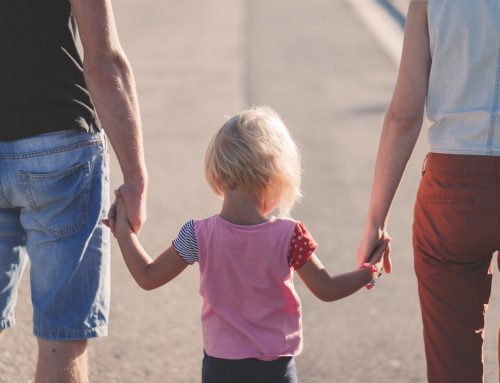If you’re in a troubled marriage or other close relationship, you may be asking yourself what went wrong. How could the good times you once had turn into the dark days you feel you’re living through right now?
If your relationship is filled with conflict, misunderstandings or periods of frustrated silence, you may find it hard to imagine being close again. Your mind goes over and over the things you’ve grown to dislike in your partner. Blame can easily take over, convincing you that if only your loved one would do this or that – or stop doing this or that – everything would be fine.
Janae Munday, an expert therapist working with couples and individuals in Phoenix, understands the patterns that can develop between married or committed partners. Surprisingly, she says, the challenge is not always limited to “fixing” the behaviors that you don’t like, but instead in finding new ways to show compassion for the other person so healing can begin.
THE 5 GIFTS OF COMPASSION
Compassion is one of the most powerful tools you can have when it comes to bridging differences in a committed relationship. In fact, the word compassion comes from the Latin roots com (with) and pati (suffer). When we offer someone genuine compassion, we join them in feeling of pain they may be experiencing.
Right now, you may be far too focused on your own unhappiness for this to make sense. But by realizing that both of you are feeling pain right now, you can begin the process of creating a compassionate environment where it’s safe to look at your differences.
When you acknowledge your partner with compassion, you offer 5 healing gifts – and open the door so he or she can give you the same gifts in return.
- You let your partner know that you really see him or her. One of the most powerful needs we have as humans is to be seen and understood. When we offer someone compassion, we acknowledge them and show concern for what they are feeling.
- You show your partner that you hear his or her voice. Being heard is another primal human need that may have gone unmet in your partner’s childhood or past relationships.
- You acknowledge that your partner is hurting, too, and give him or her the right to express pain, sadness, fear, anger, or any other emotion.
- You confirm that you care about your partner as a human being. Depending on your loved one’s family history, he or she may have gotten very little love early in life, so showing you care matters very much right now.
- You offer comfort and soothing, whether it’s a healing glance, a loving touch, a supportive hug, or a kind word. This stimulates the soothing and contentment systems in the body and provides a sense of security that tones down negative emotions and sets the stage for helpful dialogue.
HOW COMPASSION CHANGES THE BODY’S REACTIONS
Compassion for others is deeply rooted in human nature. It has a biological basis in the brain and body. We are actually “wired” to respond to others in need. In fact, helping others brings the same pleasure we get from the gratification of personal desire.
Research shows that when young children and adults feel compassion for others, they undergo real physiological changes. Their heart rate goes down from baseline levels, which reduces the chance that we will fight or distance ourselves from the other. Instead, we are ready to approach and offer support. Love and kindness, especially in early life, even affect how certain genes are expressed.
OPENING THE DOOR FOR IMPROVEMENT
Creating the safe space in which compassion can grow is difficult, especially for couples who might not even be speaking to one another. Janae Munday has the extensive training in individual and couples therapy to help ease the tensions between you so the healing process can begin.
If you’re worried about your marriage or committed relationship, call Janae now to schedule a convenient appointment time.
Source





